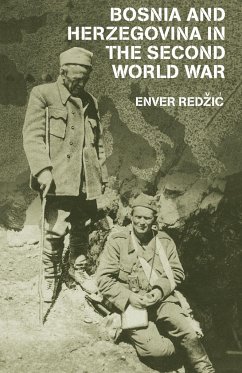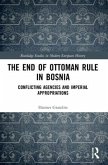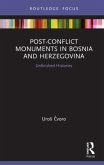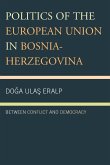Five major groups fought one another in Bosnia and Herzegovina during the Second World War: The German and Italian occupiers, the Serbian Chetniks, the Ustasha of the Independent State of Croatia, the Bosnian Muslims, and the Tito-led Partisans. The aims, policies, and actions of each group are examined in light of their own documents and those of rival groups. This work shows how the Partisans prevailed over other groups because of their ideological appeal, superior discipline, and success in winning the support of large numbers of uncommitted Bosnians, particularly the Bosnian Muslims.
Bitte wählen Sie Ihr Anliegen aus.
Rechnungen
Retourenschein anfordern
Bestellstatus
Storno








